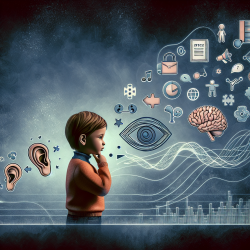As the landscape of mental health care continues to evolve, the integration of technology, particularly machine learning (ML) and artificial intelligence (AI), has become a focal point. A recent study, "Machine Learning in Clinical Psychology and Psychotherapy Education: A Mixed Methods Pilot Survey of Postgraduate Students at a Swiss University," provides insightful data on how future clinicians perceive the impact of AI/ML on their profession. This blog will explore key findings from the study and offer practical steps for practitioners to enhance their skills and stay ahead in this rapidly changing field.
Understanding the Impact of AI/ML on Mental Health Care
The study revealed that while most postgraduate clinical psychology students had heard of machine learning, their formal education on the topic was limited. Students estimated that only 0.52% of their program would be dedicated to AI/ML education. Despite this, a significant number of students (46%) expressed an intention to learn more about AI/ML as it pertains to mental health care.
Key Themes from the Study
- Changes in the Quality and Understanding of Psychotherapy Care: Students believe that AI/ML can facilitate access to mental health services and lead to new insights into the mechanisms and causes of mental illness.
- Impact on Patient-Therapist Interactions: While AI/ML can support therapists, the human element in therapy, such as empathy and personal connection, remains irreplaceable.
- Impact on the Psychotherapy Profession: AI/ML tools can assist therapists by automating routine tasks, allowing them to focus more on patient care.
- Data Management and Ethical Issues: Concerns about data privacy and ethical implications were prominent among students.
Practical Steps for Practitioners
To stay relevant and effective in the field, practitioners should consider the following steps:
- Enhance Your Knowledge: Engage in professional development opportunities focused on AI/ML in mental health care. Attend webinars, read publications, and participate in conferences.
- Incorporate AI/ML Tools: Explore and integrate AI/ML-enabled tools that can support your practice, such as diagnostic aids and symptom monitoring apps.
- Ethical Considerations: Stay informed about the ethical implications of using AI/ML in mental health care, particularly regarding data privacy and patient consent.
- Interdisciplinary Collaboration: Work with experts in AI/ML and ethics to develop best practices and guidelines for integrating these technologies into clinical practice.
Encouraging Further Research
The study underscores the need for more comprehensive education on AI/ML in clinical psychology programs. Practitioners are encouraged to advocate for curriculum enhancements that include training on the use of AI/ML tools and their ethical implications.
To read the original research paper, please follow this link: Machine Learning in Clinical Psychology and Psychotherapy Education: A Mixed Methods Pilot Survey of Postgraduate Students at a Swiss University.










